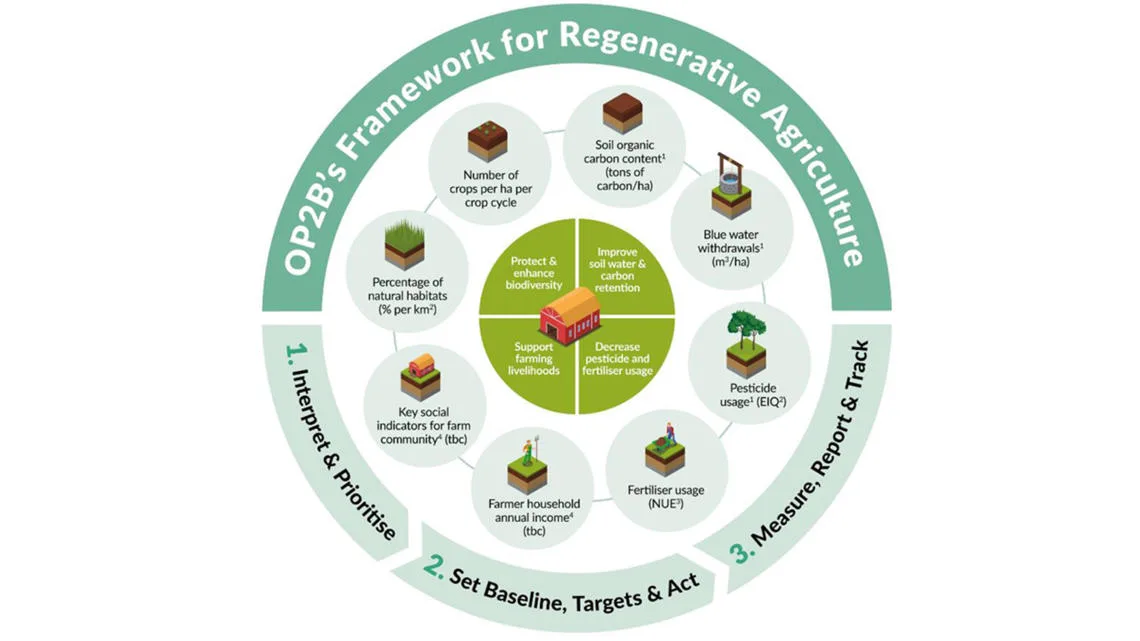
Published
01 September, 2021Type
PublicationThe current agriculture system provides people globally with an abundance of food and beverage products, and has improved food security for the most vulnerable groups. But this success comes at a considerable cost: as stated in the recent Intergovernmental Panel on Climate Change (IPCC)2 report, agriculture accounts for 70% of global fresh-water use and a third of global greenhouse gas emissions. According to the United Nations Food and Agriculture Organization (UN FAO)3, it is also associated with 80% of global deforestation.
Nevertheless, agricultural systems hold vast potential for reducing global greenhouse gas emissions, preventing land degradation and protecting terrestrial biodiversity. Carried out in a regenerative way, agricultural production could improve the livelihoods of more than 1 billion farm workers worldwide.
Regenerative Agriculture is a nature-based solution4 that aims to transition agriculture from being a primary source of environmental degradation to a primary source of regeneration of modified ecosystems.
Scientific research shows that regenerative agricultural practices, such as using cover crops or tillage reduction of perennials, can contribute significantly too. With only nine harvests left until 2030, One Planet Business for Biodiversity (OP2B) believes that the moment to act is now, transforming agricultural systems to deliver positive change.
A fundamental overhaul of our current global agricultural model towards regenerative practices is needed, to ensure the world’s growing population can be fed, and to secure continued economic prosperity. This transformation will only be possible through the involvement of all stakeholders, embarking on the journey with common objectives and through developing a common set of metrics for Regenerative Agriculture to ensure consistency in implementation.
